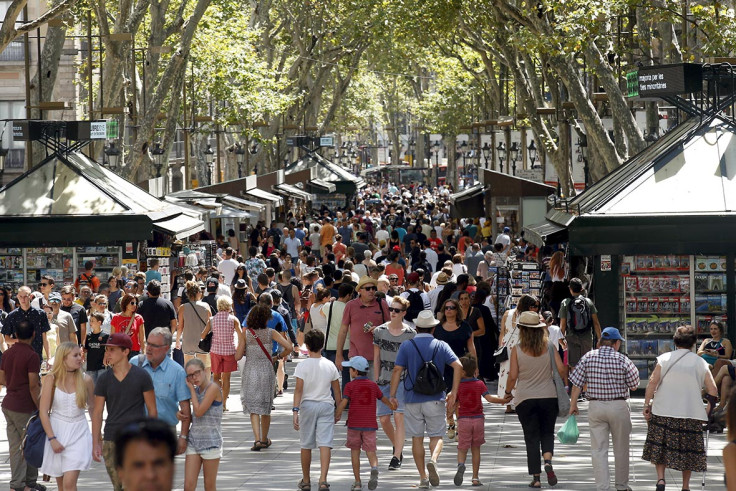Barcelona passes accommodation law to curb tourist numbers
Barcelona introduces moratorium on licenses and restrictions on hotel rooms to reduce overwhelming tourism.

Barcelona is cracking down on tourist numbers with a law that prevents new accommodation from opening in the city centre. The law passed on Friday (27 January 2017) is an attempt to reduce the overwhelming tourist numbers that have driven up rent prices and are forcing residents to move further out of the Catalan capital.
In 2016, an estimated 32 million people visited the city, which has a population of 1.6 million people. Barcelona has the highest rent prices in Spain, and residents blame the tourism industry for these increases.
There are an estimated 75,000 hotel beds and 50,000 beds in tourist apartments in the city.
The current situation has been described as unsustainable by community associations as well as left-wing citizens' movement BComú, which elected Barcelona's first female mayor, Ada Colau, in 2015.
The new law, known as the Special Urban Plan for Tourist Accommodation, would impose a moratorium on licenses for tourist apartments and limit the number of hotel beds available in the city centre.
A spokesperson for BComú explained: "When a hotel closes in Zone 1, another licence won't be granted. No new licences for tourist apartments will be granted anywhere in the city." She said that the ultimate aim was to "preserve housing stock and prevent the expulsion of residents from their neighbourhoods due to rising rents."

In a television interview on Wednesday (25 January), Ada Colau said: "Tourism must be regulated, for the good of citizens and for the sector itself, to keep it sustainable.
"The Special Urban Plan for Tourist Accommodation will prevent any housing from being turned into tourist accommodation. Housing must be for residents."
"When we introduced the moratorium a year ago, they treated us like we were mad. Now everyone agrees it is necessary."
Hotel owners have criticised the plan for not addressing the issue of tourists visiting the city during the day. Manel Casals, director general of the Barcelona Hotel Association, told The Guardian: "Of the 32 million people who visited Barcelona last year, only eight million stayed in hotels. 23 million were day-trippers who spend very little money in the city. You're not going to regulate tourism by limiting the number of beds."
The Barcelona Hotel Association said that the focus should not be on decreasing tourist activity in the city, but rather on promoting growth and boosting the Catalan capital's economy. They also called for a complete eradication of illegal tourist rental apartments in Barcelona. It is estimated that there are currently 50,000 beds in unregistered tourist properties.
The law is not expected to come into effect until 2019.
© Copyright IBTimes 2024. All rights reserved.






